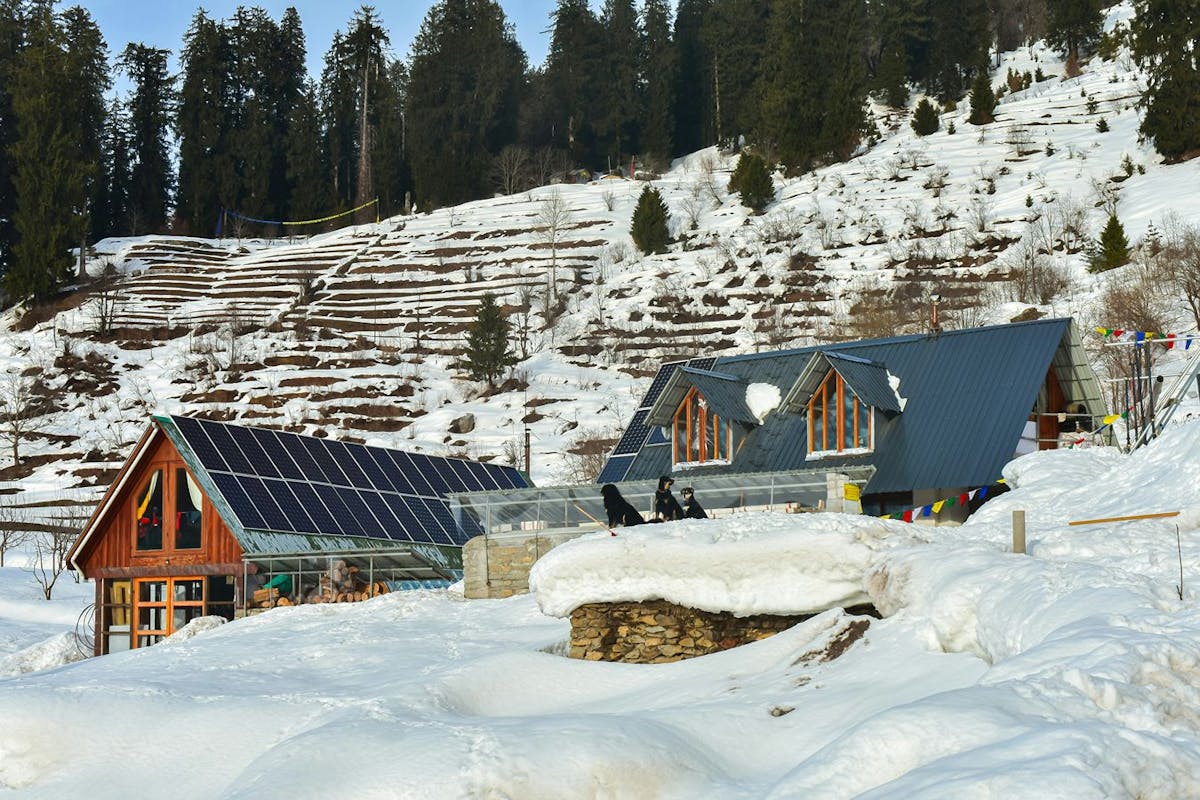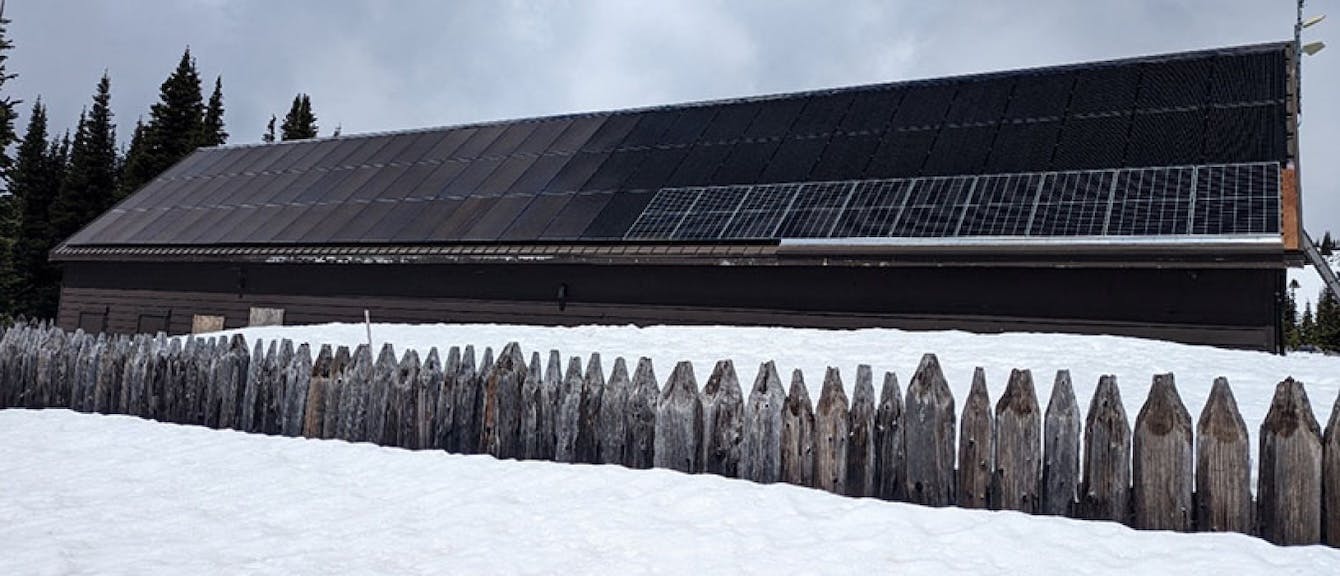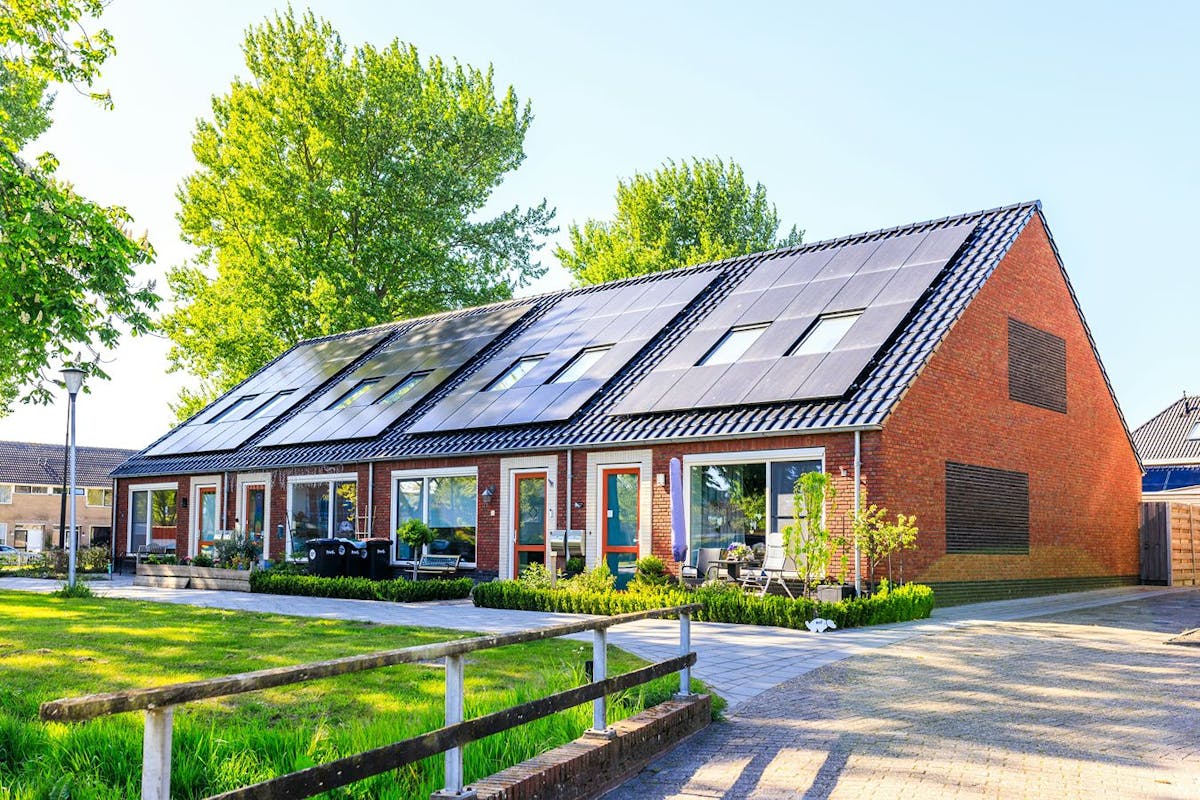Solar Panels and Snow: Is It a Problem?
Last edited
Author
Andrew Giermak
Solar and Electrification Writer and Editor
Editor
Andrew Blok
Electrification and Solar Writer and Editor

You’re considering home solar panels, but live somewhere with plenty of snow and rough winter weather. Don’t worry. Even in New England, the Rocky Mountains, and the Great Lakes — in all 50 US states, in fact — residential solar systems are in use and generating electricity year-round. Some of those northern states are ranked in the top 20 for solar installations and best solar savings.
Snow can disrupt solar production, but typically for a short period. With a little help and planning, snow panels and snow are not a troubling combination and solar energy is reliable for many homes that see plenty of snow.
See how much you can save by going solar with Palmetto
Will snow block the sun from reaching my solar panels?
Yes, snow on solar panels can block sunlight from reaching them and affect power generation temporarily.
This is something to be concerned with only in extreme circumstances. First, snow is likely to melt off of panels faster than most other surfaces. Once part of the panel is exposed to sun, the panel begins operating. This raises the temperature of the panel surface, leading to faster melting, more exposed surface, faster melting, and so on.
Another helpful factor is panels are typically tilted according to your latitude. In the US, this is mostly between 30-45 degrees. The farther north you are, the more your panels may be angled. This helps snow slide off.
Should I clean snow off my solar panels?
Most of the time, you don’t need to clean snow off panels. In fact, melting snow on solar panels serves as a natural cleaning agent for panels.
It’s best to let snow just melt off. You can find tools for clearing snow off roofs or solar panels, but scratching or damaging your panels could cost you more than you gain from clearing them off. When in doubt, follow your installer’s or panel manufacturer’s instructions.
See how much you can save by going solar with Palmetto
Do solar panels work in the winter?
Yes, solar panels work and often are more efficient in the winter. However, shorter days in the winter can mean less solar production, especially in the northern US.
Snow on solar panels can temporarily block their production. Once panels are in the sun, though, the heat generated by the panel surface melts snow faster than most nearby surfaces. This means your solar energy production will tend to start relatively soon after light snowfall.
Some might worry about the weight of the snow on solar panels, or if ice or wind could damage them. Residential panels are built to be very durable and manufacturers warranty them for 25 years or longer. Snow and ice rarely cause damage.
Northern states, or states with plenty of rough winter weather, are among the top states for installed solar capacity. According to numbers from the SEIA through the first half of 2025, New York (8th), Virginia (9th), Illinois (10th), Ohio (11th), New Jersey (12th), Massachusetts (13th), Indiana (14th), Colorado (15th), Utah (16th), Wisconsin (18th), and Minnesota (20th) are in the top 20 states.
In Washington’s Mount Rainier National Park in 2021, park officials renovated and strengthened its solar panel arrays installed on two of its buildings. In winter 2021-22, the maximum snow depth for the season was over 13 feet. There was no damage to the panels and system components. The solar system results in a 91% reduction in the site’s fuel consumption.
Credit: Department of Energy
Solar panel seasonality
No matter where you go solar, except for near the equator, you’ll need to consider solar seasonality. Solar panel systems are designed with your location’s peak sunlight hours and other specifics in mind. In the US, panels generate less solar power in the winter than in the summer.
There’s also seasonality to electric consumption. Using more AC in the summer, using more power during the holidays, or using less power during ideal fall or spring weather are just some factors that can change your consumption, leading to higher or lower energy consumption.
If your home solar system is connected to net metering, you send your excess solar energy to the utility grid in exchange for credit. When you use grid electricity at night or during a snowstorm, your net metering credit can offset the cost. Credits you carry over from previous months can help make up for the drop in production during winter. At the same time, being connected to the grid provides you power when your panels don’t generate as much as you need.
It’s also helpful to know the true-up date from your utility company, if you have one. This is the date when excess net metering credits are paid out by your utility or lost. Your account will be reconciled or reset for the net metering program on this date.
The bottom line on solar panels and snow
Snow, or winter weather in general, usually isn’t problematic for solar panels. Snow may temporarily interrupt electricity production, but will typically melt off fairly quickly. Since solar systems are specifically designed for every home, typical snowfall is factored into the physical design and your projected energy production.
Solar energy can be reliable and efficient through harsh winters as some of the best all-around and growing states for solar have long winters. Panels are durable enough to stand up to the snow.
If you’d like to learn more, start with our solar savings tool. You can learn about saving energy and potential energy upgrades for your home with the new Palmetto app.
See what solar can do for you:
Frequently asked questions
Do I have to clean snow off of solar panels?
You almost never need to clean snow off of home solar panels since it usually melts off panels faster than surrounding surfaces. You’d need a lot of snow for panels to be in danger of being damaged due to the weight of the snow.
Do solar panels work in places with a lot of snow?
Yes. Solar panels work in areas with a lot of snow. Northern states are some of the states with highest solar usage. According to 2024 numbers from the Solar Energy Industry Association, Illinois (4th), Ohio (5th), New York (7th), Indiana (10th), Wisconsin (16th), and Maine (18th) were highly ranked for solar PV installations.
Do solar panels work when it’s cold out?
Yes. Residential solar panels are manufactured to function to at least -40 degrees. Panels are more efficient when it’s cool or cold.
If there is a power outage, will my power go out?
If you add a home battery to your solar power system, you can limit disruptions caused by grid outages. How much of your home a battery can power and for how long depends on several factors.
- The size and production of your solar panels
- The capacity of the battery storage
- The battery’s state of charge when the outage occurs
- The areas or appliances in your home that are prioritized to receive power when the grid goes down.
If your solar energy system does not include a home battery, your power will go out. Standalone solar energy systems will automatically shut down during an outage in accordance with grid codes and mandatory inverter specifications.



